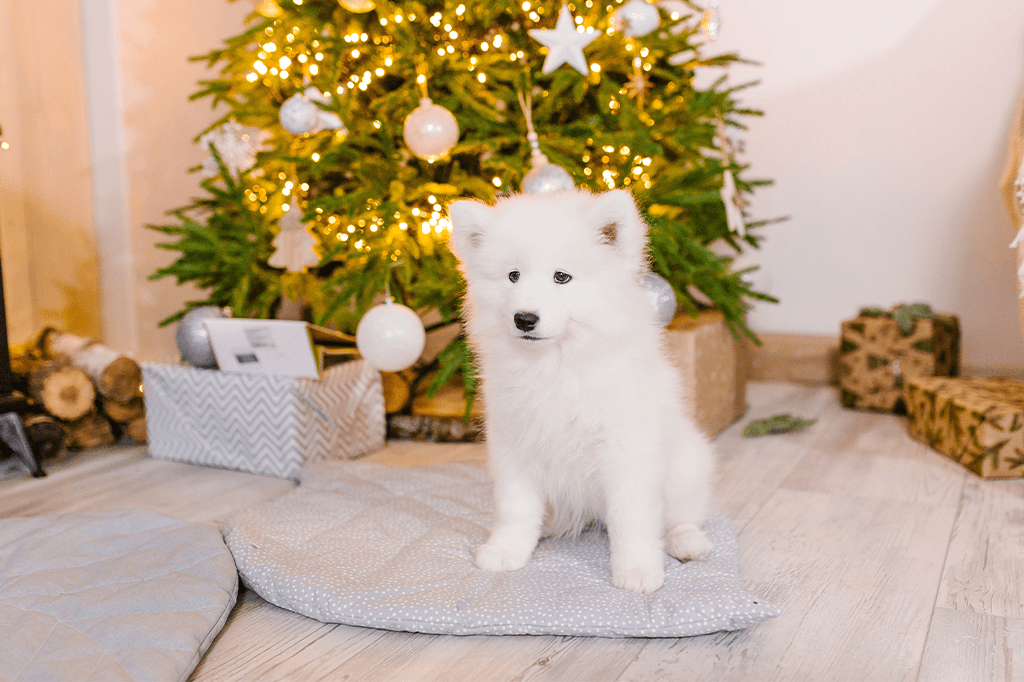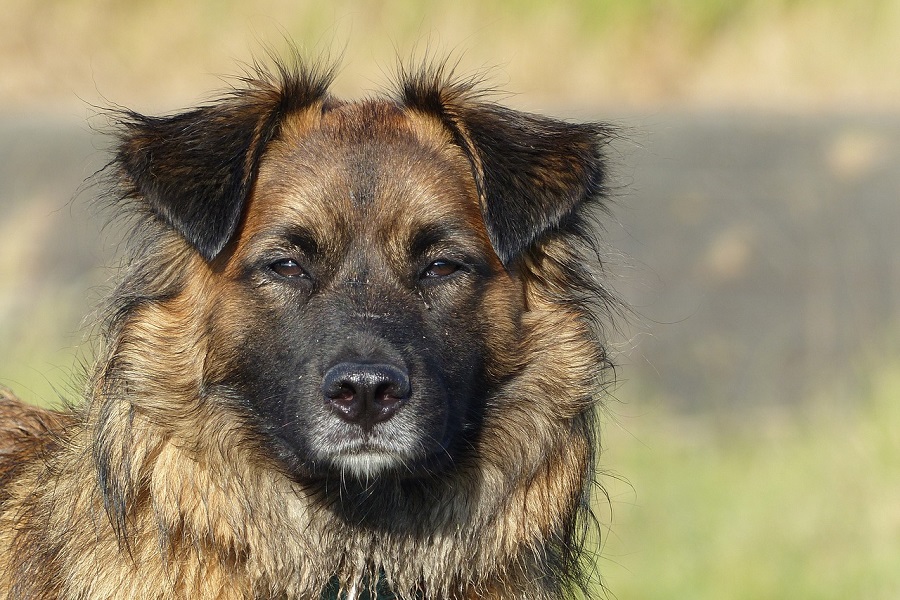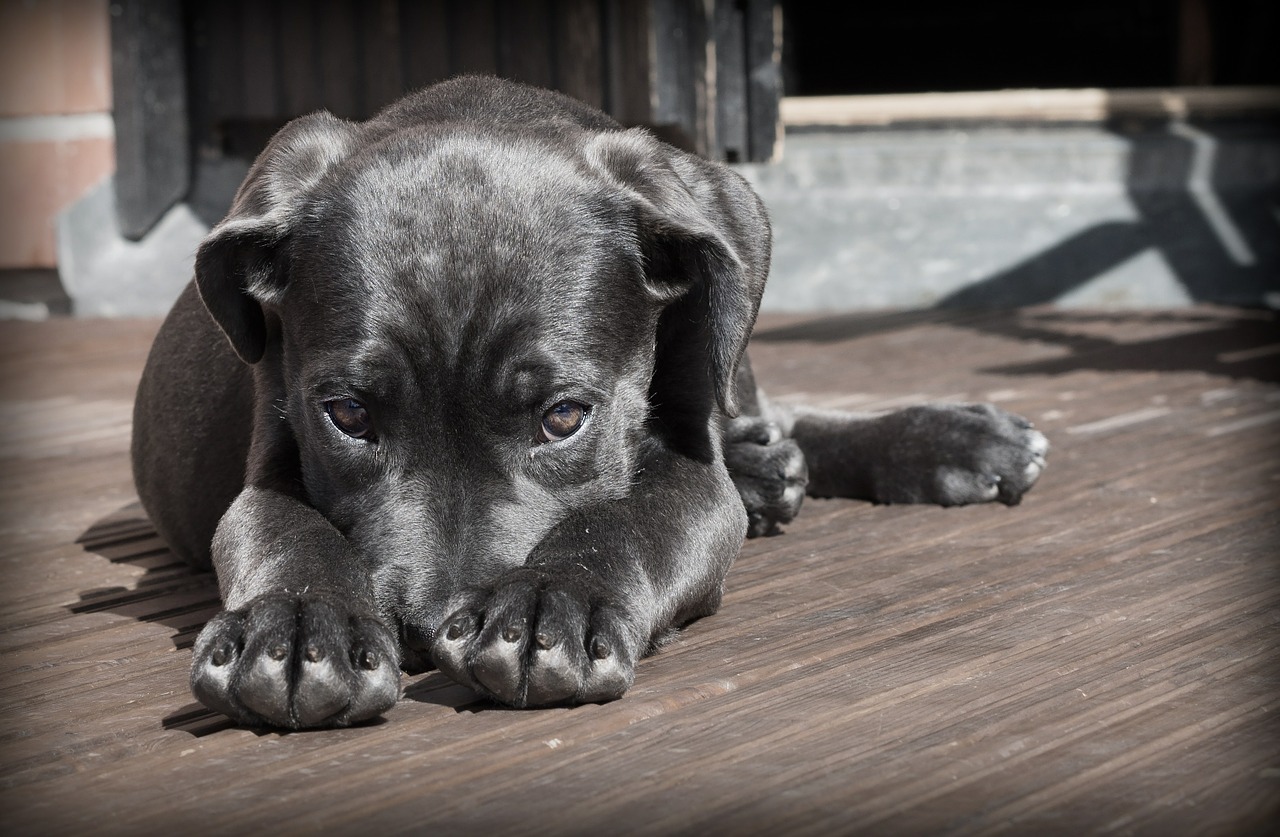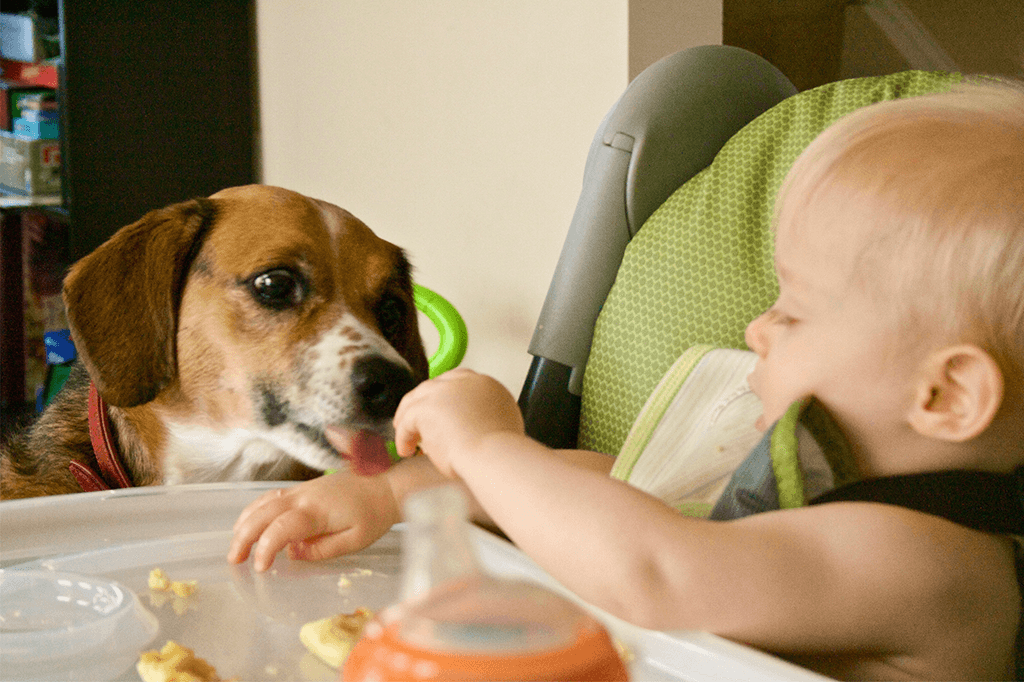4 Ways To Stop Your Itchy Dog From Scratching and Biting Their Skin!
No one wants to watch their itchy dog suffering from and scratching at their skin. All too often it leads to them tearing out their fur and biting the patchy skin until it turns red and raw. These ‘hotspots’ can take weeks or even months to heal.
Thankfully, there are ways for you to make life a little easier for your pet. But first, you’ll need to identify what is making the dog so irritated.
Seasonal Allergies = Dermatitis
Every summer, my dog, Lucy, would develop hotspots and start scratching and biting like crazy at her hindquarters. She suffered terribly from seasonal allergies and the fleas loved her. She was one of the many dogs with allergies to pollen, grass, mold, ragweed, and even trees.
If your dog develops any of the following symptoms in spring, summer, or fall, it’s likely that he or she suffers from allergies to:
- Biting Or Scratching Excessively
- Rubbing Against Vertical Surfaces and Corners
- Inflamed Skin
- Soreness To the Touch
- Hair Loss
- Odor Discharge From the Ears
- Shaking Their Head
Food Allergies Can Show on the Skin
Another issue that causes itching could be food allergies. Although, dogs don’t develop these as often. According to Web MD, some of the foods that dogs are most likely to be allergic to include:
- Pork, Beef, Chicken, Fish, Rabbit, or Lamb
- Dairy and Egg Products
- Wheat
- Soy
If your itchy dog is sensitive to what they’re eating, you’ll most likely see them licking at their bottom, hind end, or their feet. They may also have other symptoms, such as inflammation, gas, or diarrhea.
Fleas and Ticks Having a Feast
If your itchy dog starts biting in summer or spring, it may not be allergies but a parasite feasting on them. Fleas and ticks can hop up on your furry friend during their daily walk and settle in for the long-term.
Signs of fleas are fairly obvious. You need only sepa is rate their fur to look for the small black specks that are roughly the size of a pinhead. On the other hand, ticks get larger the longer they are attached. They can start out the size of a pinhead and increase to the size of a marble when engorged. If it’s a tick, your dog likely limits scratching and biting to one area of their body.
Anxiety Needs an Outlet!
Dogs can also develop anxiety and even express obsessive compulsive-like symptoms. They may have an initial itch or seasonal allergies, but the biting becomes something that they do to relieve anxiety over time. They can even develop these symptoms out of boredom.
You may notice your dog returning to the habit when they become visibly upset, bark a lot, or if you have to leave them alone for long periods of time.
Ways To Stop an Itchy Dog From Scratching!
Now that you know what the cause of an itchy dogy is, let’s take a look at some tips and tricks to help stop the scratching and biting.
- Address Seasonal and Food Allergies
The simplest way to stop your dog from scratching at allergy affected skin is to start medication. Your veterinarian should be able to recommend several oral and topical treatments that relieve seasonal allergies. If food allergies are the problem, your vet will likely recommend a special diet that doesn’t include the trigger ingredient. After a few weeks on the new diet, symptoms should improve.
Also, give your pet frequent baths to remove pollen or mold from their coat. This can keep their reaction down some.
- Give Your Dog a Nice Chew Toy or Bone
Anxiety prone and bored dogs just need something to do! If you can get your pet in the habit of using chew toys or chewing on bones, their urge to bite themselves may have a more appropriate outlet. Take your dog to a pet store that allows animals and let them pick out the toy or bone that they like best.
If your dog is food focused, you may also be able to use some KONG chew toys. These are natural rubber objects with small holes that you can place food inside. Your dog works to get the food out of the toy, which can distract him or her from biting and scratching. On a side note, try putting peanut butter inside the toys and freezing them so that the peanut butter is harder to get out. It will make the food part of the toy last a bit longer.
- Keep an Itchy Dog Distracted
Beyond toys, you have the power to help keep your itchy dog distracted from biting
and scratching. If the issue is related to anxiety or boredom, a lot of that can be worked off via a long walk or a trip to the park a few times a week. Teach your dog new tricks or play catch to help keep their mind challenged.If there is some separation anxiety going on, you may be able to keep your dog distracted with a food filled chew toy, like the KONG toy, while you’re gone. Only put out the toy right before you leave and make sure to put it away when you get home. This is a kind of counter-conditioning that helps the dog associate being alone with receiving a special treat. However, it only works if the dog is still willing to eat when you are gone.
- Apply a Bitter Spray to the Area
Sometimes, bitter sprays help keep an itchy dog from biting their skin. This is a useful option for those who are suffering from anxiety, compulsive, or allergy related issues. There is a wide array of options on the market, be sure to speak with your veterinarian before purchasing one. Some are designed for use on furniture and flooring, and others may irritate broken skin.
When you first buy the spray, put a small amount of it on a piece of cloth or a cotton wipe and put it in your dog’s mouth. This will help them associate the smell and look of the spray with an unpleasant taste. Don’t try to force the dog to keep it in its mouth. Allow them to spit it back out again. In fact, that is the ideal reaction.
If an itchy dog doesn’t like the spray, then you should make sure to apply it to the areas of the skin that they tend to bite or scratch according to the instructions on the container.
Scratching and biting are just a few of the many bad habits your dog can pick up. Teach your dog better coping mechanisms and new skills with the techniques available in a free set of Reinforce-Alpha-Positive-Training (RAPT) videos!




